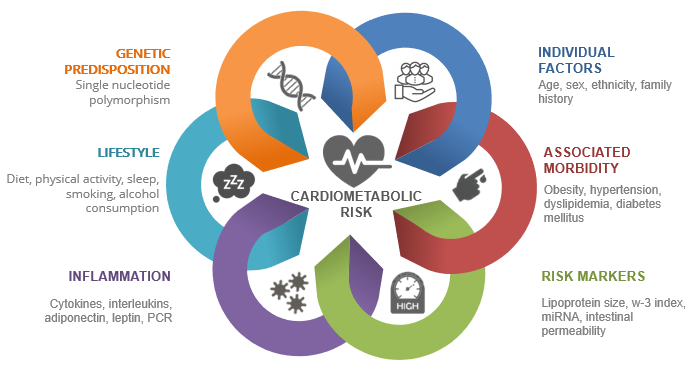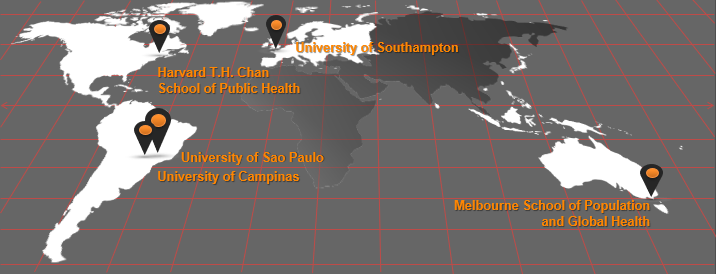Lifestyle, biochemical and genetic markers as cardiometabolic risk factors: Health Survey in São Paulo city
In view of the expressive prevalence of non-communicable chronic diseases (NCD), such as cardiovascular diseases, and negative repercussions on health and economy, strategies that investigate cardiometabolic risk factors are crucial for prevention and control of NCD. In this context, this population-based cross-sectional study aims to evaluate lifestyle-related modifiable factors in residents of the city of São Paulo, as well as its association with biochemical and genetic markers related to cardiometabolic risk factors. For this purpose, socio-demographic, economic and lifestyle data were collected in a structured questionnaire from individuals of both sexes, aged 12 years and older (n = 901). During the second visit, anthropometric evaluation, blood pressure measurement and blood collection were performed, and the adults and older adults were invited to perform bone densitometry and estimate energy expenditure by doubly labeled water. Blood was collected for determination of micronutrient concentration, glycaemia, lipid profile, inflammation biomarkers and single nucleotide polymorphisms. Food consumption was assessed by two 24-hour recalls. As NCD present multifactorial etiology, an approach that considers cardiometabolic risk markers (inflammation, lipoproteins, microRNA, intestinal permeability, DNA, body weight), risk behaviors (diet, physical activity, sleep, smoking, alcohol consumption) and also determinants of these behaviors (physical and social environment) can provide answers that allow effective interventions in public health. Therefore, this proposal brings a broad and, at the same time, profound approach to the complex relationships regarding NCD in the population.


project number 2017/05125-7
INVOLVED RESEARCHERS
PRINCIPAL INVESTIGATORS
PARTNER INSTITUTIONS




